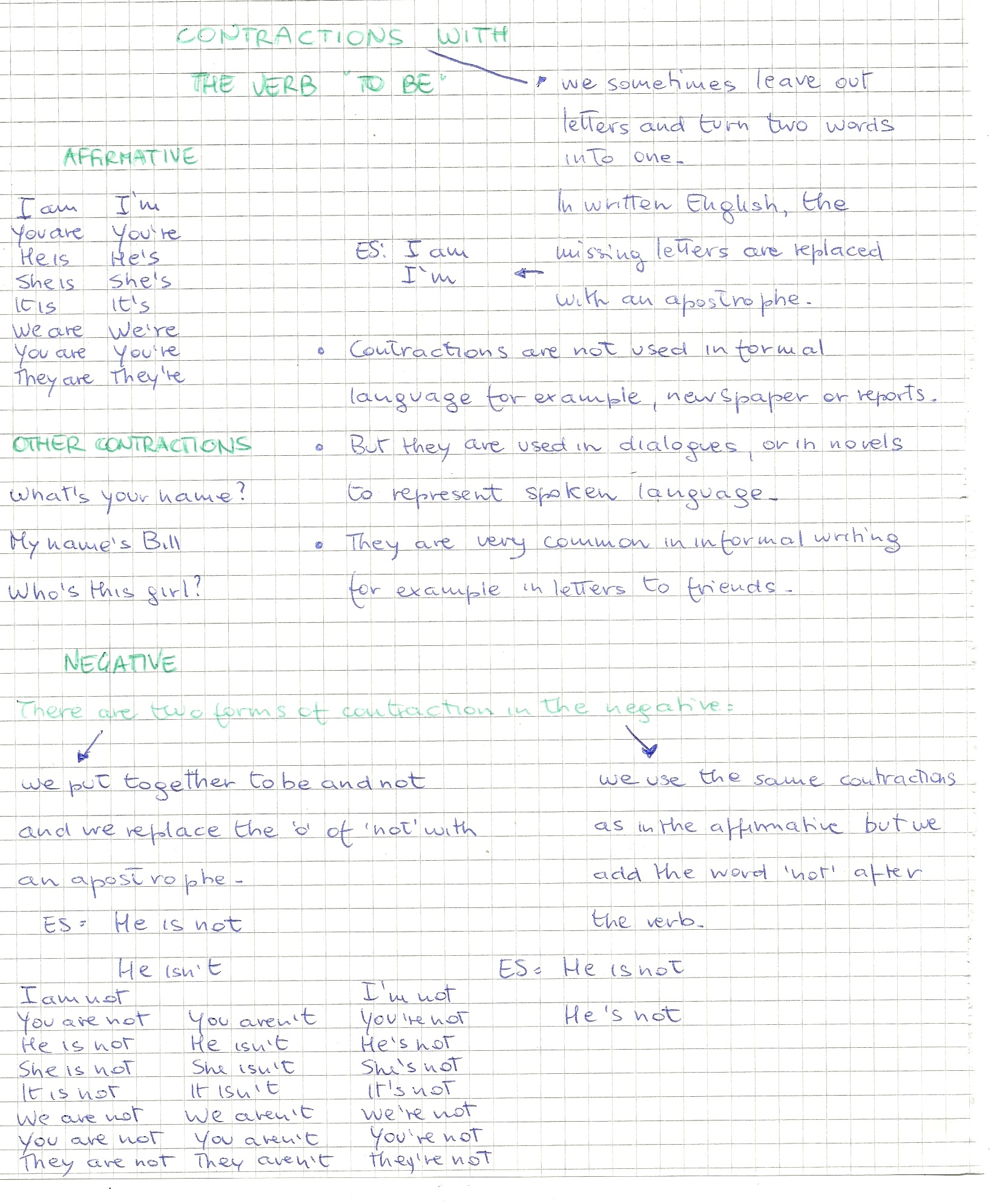Today we’re going to look at the contracted forms of the verb “to be” in the present simple. Remember that contractions are very common in informal writing and speech in English.
Oggi daremo un’occhiata insieme alle forme contratte del verbo “to be” al Present Simple. Ricorda che le contrazioni sono molto comuni sia nell’inglese scritto informale che in quello parlato.
Before we continue, here’s a reminder of the verb “to be” in the present simple:
I am
You are
He / She / It is
We are
You (plural) are
They are
To make a contraction with a subject pronoun and the verb “to be”, join the two words and replace the first letter of the conjugated verb “to be” with an apostrophe.
Per effettuare una contrazione con un pronome personale e il verbo “to be”, basta unire le due parole e sostituire la prima lettera della forma coniugata del verbo “to be” con un apostrofo:
|
|
||
|
|
||
|
|
||
|
|
||
|
|
||
|
|
Have a look at the following dialogue between Richard (R) and Sandra (S) to see contractions in everyday speech:
S: Hey, Rich! I heard you’re going to Brazil this week!
Ehi Rich! Mi hanno detto che questa settimana vai in Brasile!
R: Yes, I’m leaving on Thursday morning.
Sì, parto giovedì mattina.
S: You’re so lucky. I’m just staying here the whole summer.
Beato te. Io invece starò qui tutta l’estate.
R: That’s unfortunate. Did you hear that John’s coming with me to Brazil? He’s buying his ticket tonight. We’re both really excited.
Che sfortuna! Sai che John viene con me in Brasile? Stasera compra il biglietto. Tutti e due ne siamo davvero entusiasti.
S: Have a great time!
Divertitevi!
To make a negative sentence, just add “not” after the contraction. For example,
Per creare una frase negativa basta aggiungere “not” dopo la contrazione. Ad esempio:
– I’m not happy because it’s raining.
Non sono felice perché sta piovendo.
– She’s not coming to the party.
Lei non viene alla festa.
– They’re not tired today.
Oggi non sono stanchi.
– We’re not going to the party because we haven’t been invited.
Non andiamo alla festa perché non siamo stati invitati.
It is also possible to say “you aren’t” instead of “you’re not”, “he / she / it isn’t” instead of “he / she / it’s not”, “we aren’t” instead of “we’re not” and “they aren’t” instead of “they’re not”. For example,
– She isn’t coming to the party.
– They aren’t tired today.
– We aren’t going to the party because we weren’t invited.
